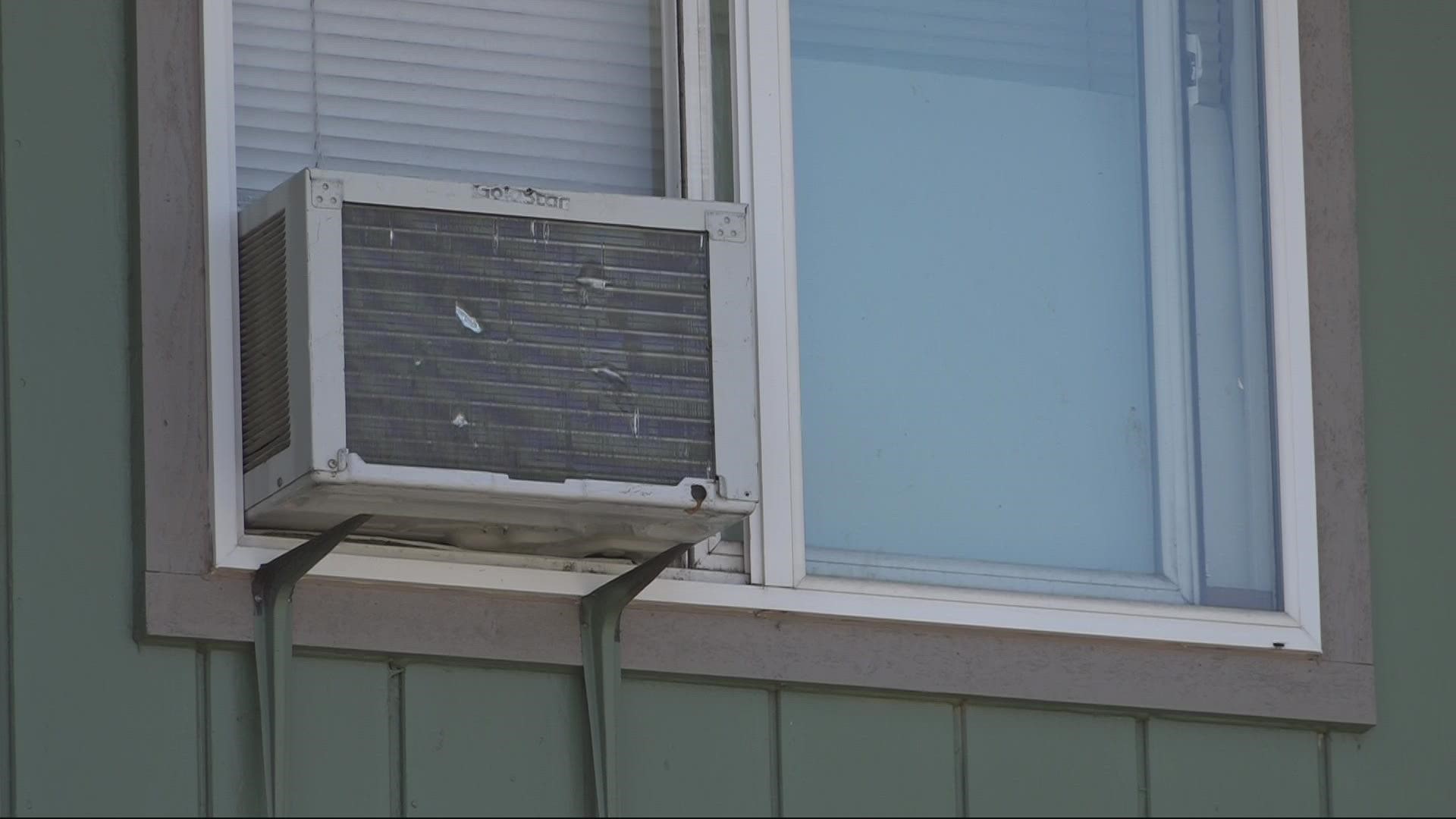NEWBERG, Ore. — Editor's Note: A KGW viewer watched the story and stepped up to help, purchasing portable AC units from Ankeny Hardware for the women featured in this story. With the help of the store owner, they delivered the units for free on Wednesday, July 22. The women were allowed to have portable units but couldn’t afford them. Read update here.
Original Story:
Tenants at a low-income apartment complex in Newberg were given eviction notices earlier this month for having air conditioning units in their windows after the Yamhill County Housing Authority found them to be a fire hazard.
Many of the tenants said they're now forced to choose between living with no air conditioning or losing their apartments.
"I get physically sick because you’re so hot," said tenant Niki Sherman, who’s lived at Haworth Terrace for about 15 years.
"In this 100-degree weather it’s horrible," added tenant Mary McGrew. "All of a sudden in the middle of July they decide to evict mostly elderly and disabled people for their air conditioners, and I just don’t think it’s reasonable."
Mcgrew has multiple sclerosis and has lived in the apartment complex for five years. In May, she received a notice that her window AC unit is a fire hazard and must be removed or else she’ll be evicted.
"It’s really unfortunate how we’re intimidated," she said.
McGrew hired a lawyer who negotiated an extension, allowing her to keep the unit until the end of this month.
"But my eviction still stands," she said. "If I don’t have it out by July 31st, I will be evicted on the first (of August)."
Sherman said she got a notice ordering her to take our her window unit by July 21, or else she would be served with eviction papers. She said she's always had the AC unit in her window.
The property management company says free-standing "floor" AC units are allowed, but those units tend to be more expensive, often costing hundreds of dollars. Many of the tenants live off $800 a month and pay about $170 in rent.
"Oh my gosh, it would take me almost six months to save up because I live paycheck to paycheck with the stuff that I already have," said Sherman, who works as a school bus driver.
"I start to get headaches around 80 degrees and bloody noses, and I’m afraid of stroke or a seizure," added tenant Chari Casto.
Casto took her window unit out in May because she feared being evicted. She now takes multiple cold showers a day and wears wet towels around her neck.
"I don’t want to be put in a position where I have to choose being sick because I can’t eat because of the heat, and being in the street," she said.
Under Oregon law, landlords aren’t legally required to provide tenants with air conditioning.
Vickie Ybarguen, executive director of Yamhill County Housing Authority, told KGW in an email that the agency has been trying to work with tenants to find solutions, but they are legally required to comply with building standards from the federal Department of Housing and Urban Development (HUD).
"Our governing agency recently notified us that we were out of compliance with the HUD standards for units that had AC window units blocking the only secondary means of egress from rooms," she said. "For households in which their window unit prevents egress, this violation was deemed an ‘Exigent Health and Safety deficiency’ under HUD's standards requiring immediate correction."
That's what prompted the Yamhill County Housing Authority to notify tenants that they would need to remove their window units and could only use floor units, she said.
Those standards are also permissible under Oregon's Senate Bill 1536, a law passed following last year's heat dome event that prohibits landlords from banning AC units, including window units. However, there are exceptions for window units that are hazardous or out of compliance with building codes.
"For any residents who have not complied with HUD's rules, we have continued to work with them and granted extensions for their time to comply given the heat events we are forecasted to experience," Ybarguen said. "The safety of our residents is our highest priority and we are simply trying to comply with the laws while ensuring that all health and safety risks are eliminated."

